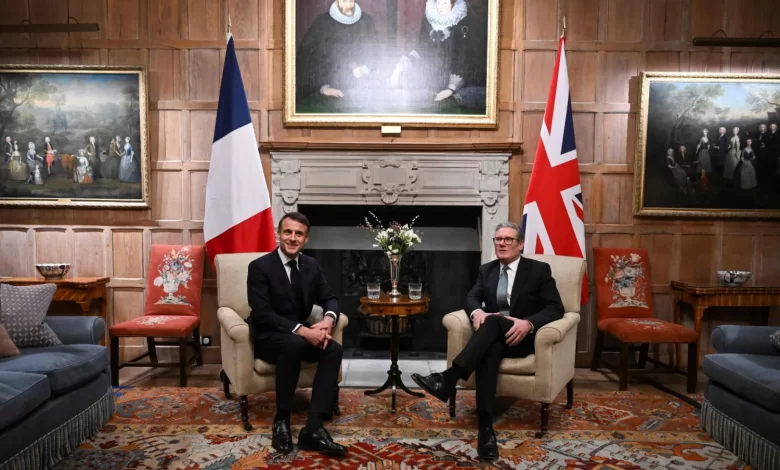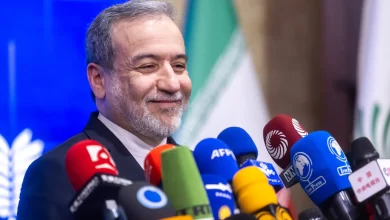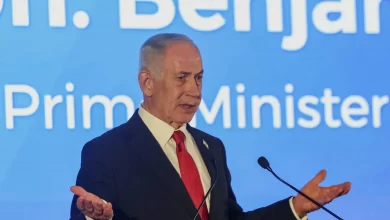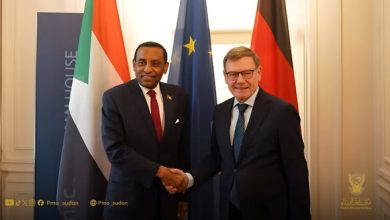InternationalNews
The Resignation of Macron’s Diplomatic Advisor Raises Questions

As of Monday evening, it remained uncertain whether the resignation of Emmanuel Bonne, the diplomatic advisor to French President Emmanuel Macron and head of the Élysée’s diplomatic cell, had been officially accepted. According to reports circulating in Paris, Bonne, 54, who has served in this role since 2019, submitted his resignation last Friday. This was revealed by a newsletter called La Lettre but has not been directly confirmed by Bonne or the Élysée Palace. The independent newspaper Le Monde quoted presidential sources stating that Emmanuel Bonne “enjoys the president’s trust and can resign whenever he wishes.”
A Key Role
The role of the president’s diplomatic advisor, who also represents him in the G7, G20, and key behind-the-scenes negotiations, is pivotal in advising the president on foreign policy. The French Constitution grants the president the authority to design and oversee France’s foreign policy, making diplomacy—along with defense—a core presidential responsibility. Bonne’s five years alongside Macron have positioned him as a cornerstone of French diplomacy.
Previously, Bonne served as an advisor to former Socialist President François Hollande (2012–2017), handling Middle Eastern and Arab world affairs, during which he met Macron, who was then Deputy Secretary-General of the Élysée and later Minister of the Economy. Bonne’s diplomatic career includes postings in Tehran and New York, as well as a brief tenure as France’s ambassador to Lebanon before being recalled to serve as Chief of Staff to then-Foreign Minister Jean-Yves Le Drian upon Macron’s election.
Over the past three years, amid the Russian-Ukrainian war, Bonne has played a central role alongside Macron. He is well-known to journalists in Paris for his regular briefings on major global events or during key summits and official visits. However, sources indicate that Bonne occasionally found himself in awkward situations due to Macron’s penchant for personally embodying French diplomacy, sometimes bypassing his advisors and the Foreign Ministry. A notable example was Macron’s unexpected proposal during his visit to Israel in October 2023 to form a regional-international coalition to combat Hamas, inspired by the international coalition against ISIS. This proposal, reportedly influenced by French intellectual Bernard-Henri Lévy, was seen as a diplomatic misstep and was swiftly rejected by Arab leaders, undermining Macron’s intended message.
Bonne was reportedly frustrated by his exclusion from preparations for Macron’s January 9 visit to the UK to meet Prime Minister Keir Starmer, where discussions focused on the wars in Ukraine and the Middle East. According to Le Monde, a confidential report prepared by Macron’s military advisor, General Fabien Madon, was withheld from Bonne, prompting him to refuse to join the presidential delegation and submit his resignation the following day.
Internal Tensions
The Élysée’s diplomatic cell has reportedly faced internal conflicts for years, marked by multiple resignations. This led the presidency to commission an external expert to assess the situation. Bonne has been described as “authoritarian” and demanding with his staff. Recently, he expressed dissatisfaction with the growing influence of military advisors around Macron at the expense of the diplomatic cell.
Bonne’s resignation has sparked speculation about potential successors. French media have mentioned names such as Nicolas Roche, France’s ambassador to Iran; Nicolas de Rivière, France’s representative to the UN; and Aurélien Lechevallier, Chief of Staff to the Minister of Foreign Affairs. However, these remain speculative until Macron decides the fate of Bonne’s resignation.



